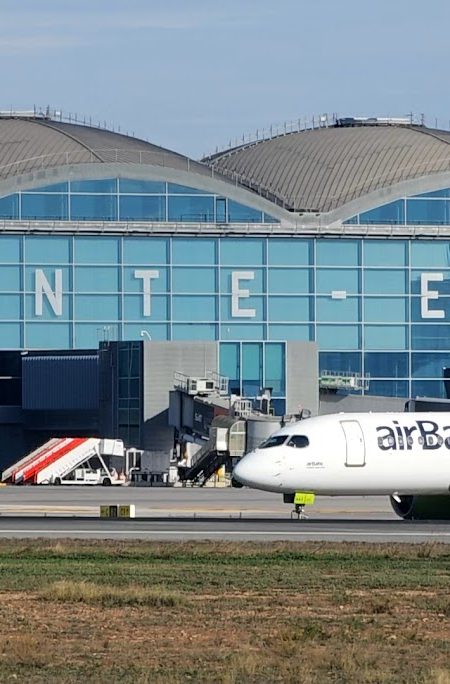Torrevieja will have to wait even longer to start its new city transport service. The Central Administrative Court of Contractual Appeals (TARC) has agreed with a firm in the field that the bidding requirements for the new urban bus service, which is worth about €138.5 million, are not fair. This is the second biggest public contract in Torrevieja’s history, after the contract for picking up rubbish.
Three parts
This special administrative court’s decision, which cannot be appealed, supports the challenge to three key parts of the tender specifications that Ruiz Bus, a company that did not bid, filed: the clause that says the winning bidder must make an investment; the clause that says the companies must be technically solvent; and the clause that says certain ISO certifications must be submitted as part of the award process. The verdict that is open to the public says that this is basically the same as cancelling the tender specifications and going back to the stage before they were written. We need to start over with the whole tender and write it all over again.
The court’s judgement came after the bidding process had already started. Three businesses made bids: Alcalabus and Marfina Bus, which are not well-known in the area, and Avanza, which is the present operator. The biggest companies in the sector that work in the Valencian Community have chosen not to bid on this crucial contract. The appeal, which stopped the contracting committee from looking at the offers, was filed in June. It took the TARC (Administrative Court of Contractual Appeals) five months to make its decision.
Unfair
The appellant contested the stipulation to remit an “exorbitant amount” immediately upon contract award, which may represent “a barrier to entry.” He thinks that this plan is meant to keep small and medium-sized businesses from taking part and “help big companies.” The winning company must buy 32 buses from the City Council within a month for 19 million euros, as stated in the bidding criteria. In 2022, Solaris Bus, the sole business that bid, was given this contract by the municipality, but the deal was not made official.
The court says that “the requirement of a single payment for the entire investment at the start of the concession is unjustified, and the amount is, moreover, higher than what is due,” because part of it is listed in the tender specifications as being paid for by European funds to the City Council. Also, this condition doesn’t make sense because the buses won’t be accessible to the concessionaire right away; the tender specifications say they have to be delivered within 18 months.
And it ends with: “This court understands that the requirement, within a very short period (1 month from formalisation), of the amount corresponding to the entire fleet constitutes a discriminatory condition in access to the concession tender, and is neither proportional nor justified, especially considering the prior file of the supply of the buses necessary for the provision of the service.”
The urban bus transport service is a municipal service that is important for tens of thousands of workers and tourists. It is still free for registered residents, but it is one of the most common complaints from people when they rate the public services they get from the Torrevieja City Council.
Too many qualifications
The court says that the second appeal, which questioned the overqualification of persons required by the tender requirements, is valid because there is no proof in the file for the required credentials. “This court agrees that these qualifications are appropriate, but it does not see any reason or legal basis for requiring university degrees, let alone for only assigning university degrees or specific professionals, since that would limit competition. There is also no explanation or justification for why the quality and proper execution of the contract is linked to a specific university graduate.”
Certifications
Lastly, the court agrees with the appellant company because the file, specifically the explanatory memorandum, does not explain how the certificates will directly improve the quality of service, which is what the tender specifications require.
Without letting anyone know
On October 15th, the resolution was signed. The mayor and regional deputy, Eduardo Dolón, lead the City Council’s ruling team. They have decided not to make it public, not even to think about it when they approved the 2026 municipal budget last Wednesday.
The governing team has been trying to get this project off the ground for six years. The service is out of date and has problems that frustrate thousands of users every day. It costs three and a half million euros a year to run in a city with dozens of residential areas far from the city centre and public amenities, and more than 110,000 people live there, which is twice as many in the summer. It is also because the existing service is not legally valid; it has been paid monthly to Avanza since 2012 without a contract, even though the Municipal Auditor’s Office has said it shouldn’t be. The average monthly bill right now is €260,000.
One of the things that is still unclear after the resolution is what the municipality will do with the contract it gave Solaris Bus in 2022 to supply 26 hybrid buses and 6 electric buses. Solaris Bus was the only company to submit a bid after the first tender was declared void, and this part of the contract is not yet official because the resolution that cancels the tender specifications affects it completely.
The main goal of the new service is to make public transport in the city better for both permanent and seasonal residents by increasing the number of buses that run on existing routes, adding new lines, and replacing the old buses with newer, more comfortable, safer, and environmentally friendly ones.
The predictions
At the end of 2023, Mayor Eduardo Dolón and Antonio Vidal, the councillor in charge of transport, held a joint press conference to say that the new service would be ready by the end of 2024.
Not long after that, the municipality urged businesses in the field to come up with a cost structure so that the tender specifications could be approved. Only Avanza replied. It was necessary to redo the process. The National Evaluation Office then checked the requirements and approved them. In fact, the municipal technicians are asking the TARC (Administrative Court of Contractual Appeals) to say that the National Evaluation Office did not protest to the clauses that are now being invalidated.
This delay throws off the city’s intention to launch a bus service before the 2027 municipal elections. These new deadlines mean that the essential investments and adjustments, such as those that would effect bus stops, will not be made, even though the contract will probably be granted by then. The extra time will also mean that most consumers will have to pay for a service they don’t now pay for.









No Comment! Be the first one.